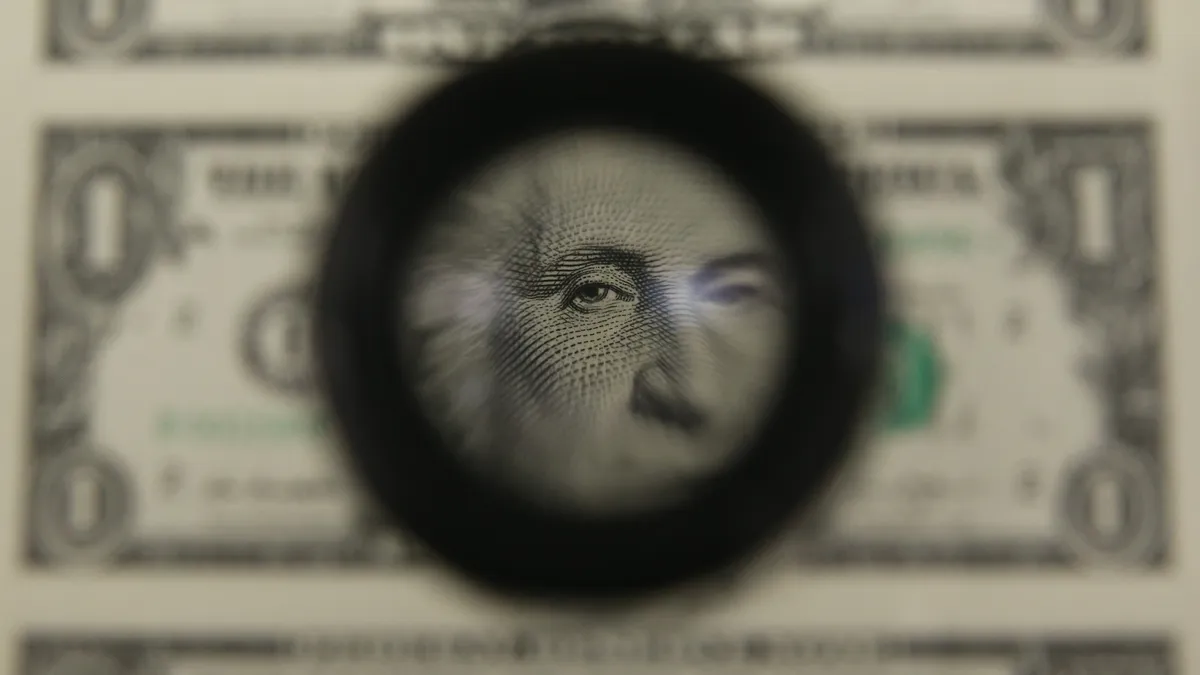Dive Brief:
- Inflation will likely remain comparatively high in coming months as a surge in post-lockdown consumer spending and record fiscal and monetary stimulus stoke demand that exceeds the capacity of low labor market participation and other constraints on supply, according to Jason Furman, chairman of the Obama administration’s Council of Economic Advisers.
-
“For a sustained period of time we’re going to have demand above trend, supply below trend, and that’s upward pressure on inflation,” Furman said during a June 30 panel discussion hosted by the Committee for a Responsible Federal Budget. He predicted inflation between 3% to 4% “at least for the next year.”
- “As businesses sit down in September to set their wages for January, are they going to think about inflation?” said Furman, a Harvard University professor. “It’s sort of damned if you do and damned if you don’t — if they don’t think about inflation, then real wages are getting creamed next year; if they do, then nominal wages are going up and with that some pressure on prices.”
Dive Insight:
CFOs today weigh conflicting inflation forecasts. Federal Reserve Chair Jerome Powell and Treasury Secretary Janet Yellen have called a recent price surge “transitory,” while economists and former federal officials have warned that unprecedented Fed accommodation and government spending may fuel sustained high inflation.
Inflation has increased this year amid a snap-back in economic growth. Fed policy makers last month upgraded their growth forecast for this year to 7% from 6.5% in March. They also decided to continue holding the benchmark interest rate near zero and buying $120 billion in Treasury and mortgage bonds each month.
With vaccination widespread and after months of stay-at-home austerity, consumers are spending again. High demand and supply bottlenecks have pushed up prices for a broad variety of products, from used cars, semiconductors and homes to commodities such as copper, steel, iron ore and oil.
The Consumer Price Index rose 5% in May from a year earlier in the biggest inflation gain since Aug. 2008, according to the Labor Department, following a 4.2% increase for the year ended in April.
The Fed’s preferred inflation measure -- the core personal consumption expenditures price index -- increased 3.4% in May from a year earlier, well above the central bank’s 2% inflation target.
Rising demand for services, a strengthening global economy and increasing wages will probably push up prices in coming months, Furman said, noting high household savings and a “huge increase in consumer spending on goods.”
A labor shortage is especially glaring, according to Ian Shepherdson, chief economist at Pantheon Macroeconomics. “Businesses are screaming that they can’t find the people they want to hire,” he said, adding “demand can’t be met because the [labor] participation rate is still very depressed.”
An imbalance in supply and demand for labor that persists into late this year and early next year would spur wage growth, he said. There is no “simple, single explanation for the missing millions in the labor force,” he said, citing ample unemployment insurance, fears of COVID-19 and the decision by many workers to forgo work to care for their children.
Sustained spending of exceptionally high household savings in coming months may spur sustained inflation, Shepherdson said.
“The really, really big question is what the heck do people do with $2.5 trillion over the next couple of years,” he said. “If they run it down quickly, or run it down at a sustained rate that the economy just can’t keep up with, then we have the first pre-condition for a medium-term inflation risk.”
The bond market has shrugged off inflation anxieties, with the yield on the 10-year Treasury declining to 1.448% today from 1.749% at the end of March.
Bond purchases by the Fed and its reassurances that prices are under control have kept yields low, Shepherdson said.
“Markets are, for now anyway, happy to believe Jerome Powell and have a lot of confidence in him,” he said. “We’ll see whether that lasts.”
An error by the central bank could prove costly, Furman said. “Surprise inflation may erode real wages and it could lead to an overreaction, or even a recession caused by the Federal Reserve.”















